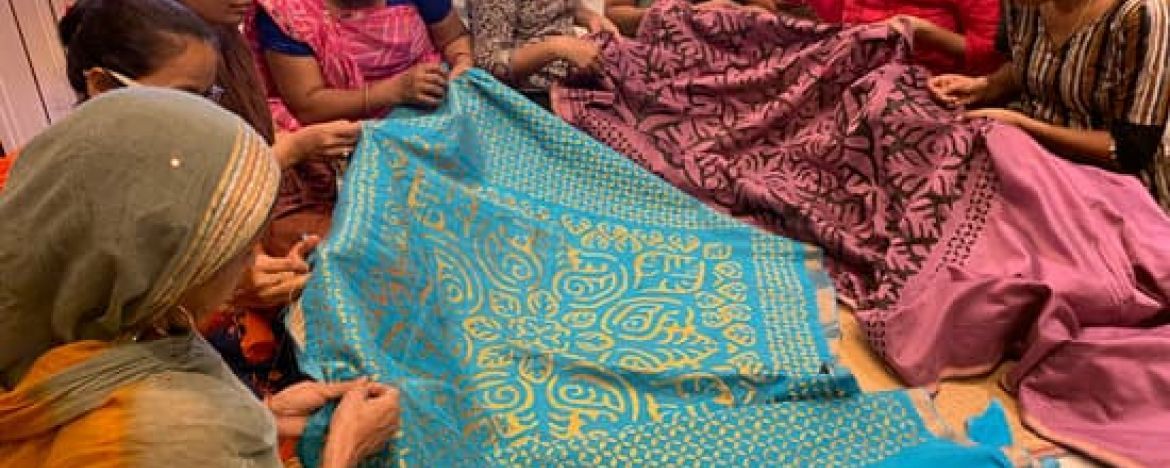
Upcycling, Recycling, Recovering: bringing the cooperative movement to young women
A concept by SEWA Cooperative Federation
The problem
The USD 1.3 trillion clothing industry employs more than 300 million people along its value chain. The production of cotton alone accounts for almost 7% of all employment in some low-income countries. Moreover, about 75% of the 11.2 million formally employed in the global garment industry are women. The number of women working informally is estimated to be
much higher— closer to 35 million informal women workers.
It is estimated that more than 1 million tonnes of textiles is thrown away every year, with most of this coming from household sources. Textiles make up about 3% of a household bin by weight.
- Less than 1% of the material used to produce clothing is recycled.
- Textile production (including cotton farming) uses around 93 billion cubic metres of water annually, and the chemical dyeing of clothes accounts for about 20% of the world’s industrial waste water.
- In 2015, greenhouse gas emissions from textile production totalled 1.2 billion tonnes 1
Our cooperative solution
We aim to incubate a cooperative of young women artisans, with a business model of adding value to waste fabric through upcycling and transforming the waste to usable products, which can be sold in local, national and international markets. In its initial stage, capacity building of the cooperative members will be an important activity. Further, market research, product development, setting up a production system and marketing will be carried out to scale the cooperative.
What we need
The cooperative needs start up funds in the amount of EUR 9,270 for 4 main purposes (1) Mobilising and organising young women into the cooperative, (2) Skill-based training and capacity building of the members, (3) Market research study to identify customer segments, and to develop channels of marketing, and (4) Creating marketing and communications collaterals.
They need volunteer mentors/trainers with these qualifications:

